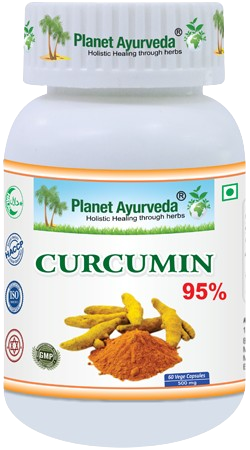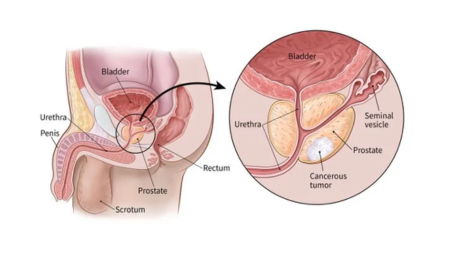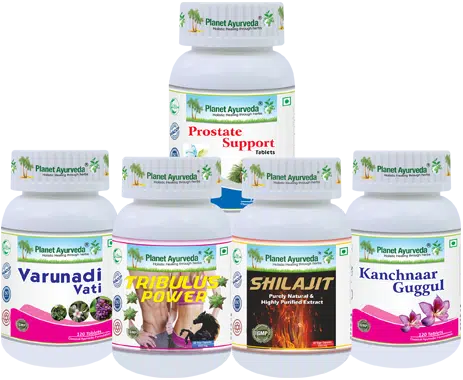Natural Ayurvedic Substitute for Amoxicillin
ABSTRACT
Have you ever wondered what really happens when you catch an infection? It’s like an invisible battle inside the body. Tiny invaders such as bacteria, viruses, or fungi sneak into our body, multiply, and start causing trouble. Our immune system tends to fight back that leads to fever, swelling and overall feeling of being unwell. Then comes the role of antibiotics which fights those invaders and our body becomes disease free, such an antibiotic is Amoxicillin. This well-known antibiotic belongs to the penicillin family. Because of its broad-spectrum power, it’s used to treat a wide range of infections like sore throats, ear infections, chest, urinary, and skin infections, etc. However, overusing it can make bacteria smarter and stronger, leading to antibiotic resistance and many side effects. Now you may wonder about its solution. And the solution is simple, use of something that is safe, natural, free of side effects and equally potent. And that something is what Ayurveda offers. So let’s discuss in detail about amoxicillin and its safer alternatives.

INTRODUCTION
Amoxicillin is a broad-spectrum β-lactam antibiotic belonging to the penicillin class. It is one of the most widely prescribed antibiotics due to its effectiveness and versatility in treating bacterial infections and particularly in respiratory tract infections. Chemically, it is a semisynthetic derivative of penicillin, developed to overcome the limitations of penicillin such as acid instability and narrow antibacterial range.
It is effective against a wide range of Gram-positive and Gram-negative organisms, including Streptococcus, Staphylococcus, Haemophilus influenzae, Escherichia coli and Helicobacter pylori. Amoxicillin is commonly prescribed for infections of the ear, nose, throat, respiratory tract, urinary tract and skin. Its oral absorption is better and food also does not interfere with the absorption. It is not degraded by gastric acid.
MODE OF ACTION
Amoxicillin is a member of the beta-lactam class of antibiotics. These beta-lactams attach to penicillin-binding proteins, blocking transpeptidation, which is an essential process in bacterial cell wall synthesis that forms cross-links. By doing so, they trigger autolytic enzymes within the bacterial cell wall, leading to its breakdown and the death of the bacterial cell. This process is referred to as bactericidal activity.
Amoxil is the brand name of antibiotic amoxicillin that is used to treat various infections. It is available with prescription only. It is used in ENT infections, dental infections, respiratory infections, urinary infections and in case of H. Pylori bacteria.
Moxatag is an extended release formulation of penicillin antibiotic amoxicillin. It is used to treat tonsillitis, pharyngitis that is caused by Streptococcus pyogenes in adults and children above 12 years.
INDICATIONS
- Bronchitis
- In penicillin resistant Streptococcus pneumoniae.
- Urinary Tract Infections (UTIs)
- Subacute Bacterial Endocarditis (SABE)
- Gonorrhea
CONTRAINDICATIONS
- Allergy to penicillin or cephalosporin
- History of antibiotic associated colitis
- Pregnancy or breastfeeding (can be taken under expert supervision)
- Severe Kidney disorders
- Liver dysfunction
- Less active against Shigella and H. influenzae
ADVERSE EFFECTS
- Allergic reactions
- Severe diarrhoea
- Fever
- Severe or prolonged vomiting
- Liver or Kidney issues
- Yeast infection
Today, the widespread overuse and misuse of antibiotics have led to growing antibiotic resistance so, the holistic approach is used to manage infectious diseases. Ayurveda provides a natural and effective alternative, focusing on enhancing the body’s inherent defense mechanisms rather than relying solely on antibiotics. According to Ayurvedic principles, infections arise due to an imbalance in the Doshas—primarily Pitta and Kapha—combined with the accumulation of Ama (toxins). Instead of directly attacking bacteria like Amoxicillin does, Ayurveda works by strengthening Agni (digestive or metabolic fire) and Ojas (immunity), helping the body eliminate toxins and control microbial overgrowth naturally.
Some of the Ayurvedic herbs that have anti inflammatory, anti oxidant, antihelmintic, anti viral properties are mentioned as below:
Haridra
- Haridra or Turmeric (Curcuma longa) is commonly available in every home. It contains Tikshana guna (Sharp properties), Ushana virya (hot potency) and Tikta rasa (bitter taste) and is used in various respiratory conditions.
- It helps in liquefaction and expulsion of thick mucus from airways and hence clears air passages, eases breathing and reduces cough congestion.
- Its fumes are useful in bronchial asthma, cough, cold, hiccoughs, etc.
Tulsi
- Tulsi or Ocimum sanctum also known as Holy Basil is one of the most important drugs in Ayurveda and is known for its wide ranging therapeutic properties.
- It is described as ‘bhutaghni’ (भूतघ्नि) i.e. herb that ward off infections, microorganisms, or negative energies. Its leaves contain ursolic acid, apigenin, luteolin, etc. and essential oil contains eugenol, carvacrol, nerol and eugenolmethylether. Ursolic acid exhibits protection of mast cell membrane by preventing granulation and decreased histamine release.
- The leaf and seed are used in rhinitis and influenza. In cough, its leaves juice along with black pepper powder is very helpful.
Yashtimadhu
- Yashtimadhu or Glycyrrhiza glabra also known as licorice is widely used in respiratory, digestive, and infectious disorders.
- It is used in bronchitis, respiratory infections, genito urinary diseases, urinary tract infections, chronic gastritis etc. by the action of its constituents like glycyrrhizin, glycyrrhetinic acid, lignans, etc.
- Sucking a piece of liquorice root controls coughing, hoarseness of voice and it is also used as decoction to clear air passages.
Vasaka
- Vasa or Adhatoda vasica is very effective in respiratory disorders. Its active alkaloids like vasicine and vasicinone provide bronchodilatory and antitussive (cough suppressing) properties.
- It dilutes the phlegm and helps in its release from the body. It is helpful in asthmatic patients as it inflates air passages thus allowing them to breathe easily.
- The juice of its fresh leaves along with honey is beneficial in old cough, bronchial asthma and tuberculosis.
Trikatu
- It consists of three bitter herbs namely Maricha (Piper nigrum), Pippali (Piper longum), Shunthi (Zingiber officinale). It calms down the increased Vata and Kapha. It has pungent (katu) taste, hot (ushna) potency, light (laghu) and dry (ruksha) quality, and digestive (Amapachaka) therapeutic effect.
- It is effective in respiratory problems due to bronchodilator properties. It also reduces the production of phlegm. Its efficacy is due to its active constituents like piperine, gingerol, etc.
- Its 2-3 gram powder along with honey and ghee provides relief in bronchitis, cough, cold and bronchial asthma.
Some of the formulations used in Respiratory System diseases are:
- Sitopladi Churna
- Trikatu Churna
- Vasa Avleha
- Shwasa Kuthar Rasa
- Vyoshadi Vataka
- Haridra Khanda
PLANET AYURVEDA’S CURCUMIN 95% CAPSULES
Planet Ayurveda is a well-known Ayurvedic company based in India, specializing in natural herbal supplements formulated by MD Ayurveda experts. One of our prominent products is the Curcumin 95% Capsules, which are formed to get maximum benefits of turmeric’s active compound, Curcumin. It is a capsule formulation and is free from any kind of preservatives, colour, additives, chemicals, starch, yeast, etc. It is safe to use and is free from any side effects. The curcuminoids in curcumin are anti-inflammatory, blood purifier, antiprotozoal and carminative. It helps in controlling upper and lower respiratory tract infections thus reducing bacterial load and infection-induced inflammation and it also strengthens immunity against recurrent infections and modulates hypersensitivity reactions seen in allergic rhinitis and asthma.
Its Dosage is 1-2 capsules twice a day with plain water after meals.
CONCLUSION
Modern medicine relies heavily on antibiotics to combat bacterial infections. However, their overuse and misuse have led to severe challenges such as antibiotic resistance, gut flora imbalance, and recurrent infections. However, Ayurveda, the ancient Indian system of medicine, offers natural alternatives through herbs (Dravyas), formulations (Aushadhis), and lifestyle principles (Dinacharya & Ritucharya) that enhance the body’s inherent defense mechanism. While antibiotics remain vital for acute and life-threatening infections, their overuse has highlighted the need for alternative, holistic, and sustainable solutions. Ayurveda offers a profound preventive and curative approach by enhancing natural immunity, detoxifying the system, and addressing the root cause of infection. Herbs like Tulsi, Haridra and Guduchi are nature’s own antibiotics — safer, synergistic, and body-friendly. Therefore, Ayurveda is a powerful alternative in the era of antibiotic resistance.





